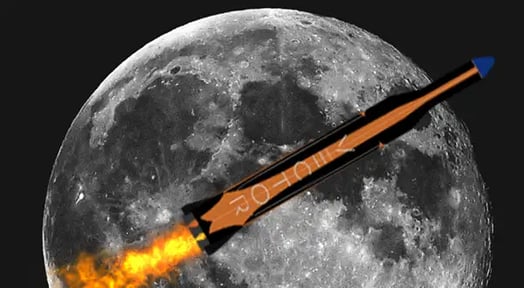Vector, a startup that launches small satellites into orbit on a budget, raised a $70m Series B to launch its clients’ space cylinders.

With its new wad of cosmic tickle cash, Vector hopes to launch its first rockets in 2019 before its competitors take off with the market.
Going big by going small
Large space companies are developing heavy, manned rockets (SpaceX’s Falcon 9 weighs 25k kg), but Vector is building small rockets that carry between 50 kg and 290 kg.
SpaceX has launched just 56 rockets in its 8 operational years. But Vector plans to launch more than 100 rockets per year once it gets up to speed.
Vector CEO Jim Cantrell told CNBC he plans to do “essentially what Henry Ford did with the automobile assembly line” — except with rockets.
Tiny satellites, big market
Small satellites are the fastest-growing segment of the $260.5B global satellite industry, and investors pumped $1B into space startups in just the first quarter of 2018.
But to capture market share, Vector doesn’t just promise small rockets — it promises small prices. While SpaceX Falcon 9 launches cost $62m (with bulk discounts available for “contractually committed, multi-launch purchases”), Vector launches will cost only $3m.
So, who would buy a $3m, microwave-sized rocket? As it turns out, plenty of businesses.
Small businesses want their names up in ’lites
Farmers, urban planners, emergency responders, and shipping companies will all pay for satellite eyes in the sky. But unlike internet giants, they’re on a budget — inspiring startups to compete to lower costs.
Virgin Orbit offers $12m launches and Rocket Lab offers $5.7m launches. But big rockets are also a threat: SpaceX now sells “rocket rideshare” tickets for just $200k — and it has 1k seats.
While these cosmic hitchhikes don’t offer control over timing or placement, they’re better than nothing until Vector (or a competitor) offers a cheaper ticket to the stars.
